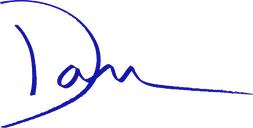Coaches play a crucial role in the development and success of athletes. However, they face various challenges when it comes to coaching neurodivergent athletes. Neurodivergent athletes may have different needs and requirements compared to neurotypical athletes, and it is essential for coaches to understand these differences to provide effective coaching.
Neurodiversity refers to the natural variation in the human brain and neurological differences that affect the way individuals process information, communicate, and interact with the world. It includes conditions such as Autism Spectrum Disorder (ASD), Attention Deficit Hyperactivity Disorder (ADHD), Dyslexia, and Tourette Syndrome, among others.
According to a study by Raiola and colleagues (2020), coaches’ perceptions and attitudes toward neurodivergent athletes affect their coaching strategies and the athletes’ experiences. Therefore, it is crucial for coaches to understand the unique strengths and challenges of neurodivergent athletes and adopt appropriate coaching strategies to enhance their performance and overall well-being.
Here are some best practices for coaching neurodivergent athletes based on peer-reviewed research:
Create a Positive and Supportive Environment
Neurodivergent athletes may face challenges in social interaction and communication. Therefore, it is crucial to create a positive and supportive environment that promotes their social and emotional well-being. Coaches can achieve this by:
- Encouraging open communication and providing regular feedback to athletes
- Fostering a culture of inclusivity and acceptance
- Using positive reinforcement to motivate and reward athletes’ efforts and progress
- Creating structured routines and predictable environments to reduce anxiety and increase comfort
Use Visual and Explicit Instruction
Many neurodivergent athletes benefit from visual and explicit instruction, including written or visual aids, demonstrations, and step-by-step instructions. Coaches can adopt the following strategies to enhance learning and skill acquisition:
- Use diagrams, pictures, and videos to illustrate techniques and strategies
- Break down complex tasks into smaller steps and provide explicit instructions for each step
- Encourage athletes to ask questions and provide additional explanations when needed
- Use visual cues, such as hand signals and color coding, to enhance communication and understanding
Incorporate Sensory-Friendly Approaches
Some neurodivergent athletes may have sensory sensitivities, including noise, light, and touch. Therefore, coaches can incorporate sensory-friendly approaches to enhance athletes’ comfort and performance, including:
- Allowing athletes to use noise-canceling headphones or sunglasses during training and competition
- Creating quiet or low-stimulus areas for athletes to take breaks or de-escalate
- Providing athletes with sensory toys or tools, such as fidgets or stress balls, to reduce anxiety and increase focus
- Using soft or textured surfaces, such as mats or foam rollers, to provide tactile input and improve body awareness
Emphasize Strengths-Based Coaching
Neurodivergent athletes often have unique strengths, such as attention to detail, pattern recognition, and hyper-focus, that can enhance their performance. Coaches can adopt strengths-based coaching to identify and leverage these strengths, including:
- Identifying individual strengths and designing training programs that capitalize on them
- Providing opportunities for athletes to use their strengths in creative and strategic ways
- Encouraging athletes to develop self-awareness and self-advocacy skills to communicate their needs and strengths effectively
Coaching neurodivergent athletes requires a deep understanding of their unique strengths and challenges. By adopting evidence-based coaching strategies, coaches can create a positive and supportive environment that promotes neurodiverse athletes’ success and well-being.
References:
Raiola, G., Scarinci, A., & Liukkonen, J. (2020). Coaches’ perceptions and attitudes toward the inclusion of neurodivergent athletes in sports


